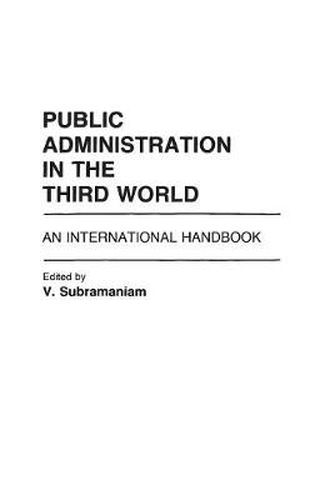Readings Newsletter
Become a Readings Member to make your shopping experience even easier.
Sign in or sign up for free!
You’re not far away from qualifying for FREE standard shipping within Australia
You’ve qualified for FREE standard shipping within Australia
The cart is loading…






This multi-author reference handbook gives a picture of the evolution, structure and processes of public administration in representative Third World countries. It presents empirical studies of developing nations in Asia, the Middle East, North and Sub-Saharan Africa, the West Indies and Latin America. The resulting data are shaped into a theoretical framework delineating the complex relationships of state, bureaucracy and class in the Third World. Subramaniam’s introduction provides an overview of development literature in the field. Each case study begins with an historical introduction and discusses the political, executive and the administrative structures and processes. Among the specific topics covered are public enterprises, administrative departments, personnel, financial administration, and regional and local administrative units. The majority of the systems studied are affected by the unregulated power of public enterprises, the persistence of colonial legacies and the elitism of the bureaucracy. The concluding section relates these common elements to the sociohistorical characteristics of the middle-class groups that dominate both politics and public administration.
$9.00 standard shipping within Australia
FREE standard shipping within Australia for orders over $100.00
Express & International shipping calculated at checkout
This multi-author reference handbook gives a picture of the evolution, structure and processes of public administration in representative Third World countries. It presents empirical studies of developing nations in Asia, the Middle East, North and Sub-Saharan Africa, the West Indies and Latin America. The resulting data are shaped into a theoretical framework delineating the complex relationships of state, bureaucracy and class in the Third World. Subramaniam’s introduction provides an overview of development literature in the field. Each case study begins with an historical introduction and discusses the political, executive and the administrative structures and processes. Among the specific topics covered are public enterprises, administrative departments, personnel, financial administration, and regional and local administrative units. The majority of the systems studied are affected by the unregulated power of public enterprises, the persistence of colonial legacies and the elitism of the bureaucracy. The concluding section relates these common elements to the sociohistorical characteristics of the middle-class groups that dominate both politics and public administration.